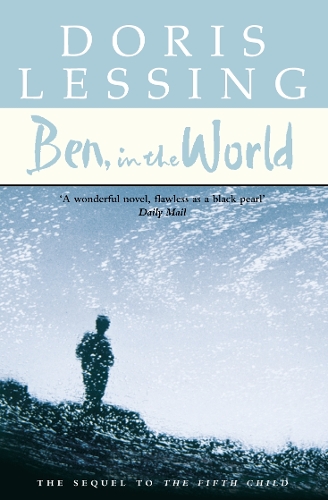
Ben, in the World
(Paperback)
Publishing Details
Ben, in the World
By (Author) Doris Lessing
HarperCollins Publishers
Flamingo
30th May 2001
United Kingdom
Classifications
General
Fiction
823.914
Physical Properties
Paperback
192
Width 129mm, Height 198mm, Spine 11mm
135g
Description
Many will recall the powerful impact The Fifth Child, Doris Lessing's 1988 novel, made on publication. Its account of idyllic marital and parental bliss irredeemably shattered by the arrival of the feral fifth child of the Lovatts made for unnerving and compulsive reading. That child, Ben, now grown to legal maturity, is the central character of this sequel, which picks up the fable at the end of the childhood where the first book ended and takes our primal, misunderstood, maladjusted teenager out into the world, where again he meets mostly with mockery, fear and incomprehension but with just enough kindness and openness to keep him afloat as his adventures take him from London to the South of France and on to South America in his restless quest for community, companionship and peace. As in Mara and Dann, Doris Lessing in this newest book returns to a plain, unadorned prose fit for fables; again, we have a childlike perspective at the heart of the book; again, the world in all its malevolence and misapprehenison swirls around at the edge, while, occasionally, a strong character steps forward to try to stake out some values and practise some good behaviour. Again, it is one of Lessing's novels that will, I think, last most particularly as a work that imaginative teenagers of all ages will be riveted by.
Reviews
A wonderful novel, flawless as a black pearl. Daily Mail
OutstandingA tour de force that poses stark questions about modern-day Britain and what it is to be human. Sunday Times
Ben, In the World is huge in scope, humanity and pathos. Lessing created a monster; her triumph is that he not only personifies the human yearning to belong, but that we also come to love him. Shena Mackay, Daily Telegraph
Author Bio
Doris Lessing is one of the most radical, provocative and diverse writers of the modern age. 'A major figure in twentieth century literature, her labours and prodigious output have helped to change the way we see ourselves.' Michele Roberts, New Statesman
